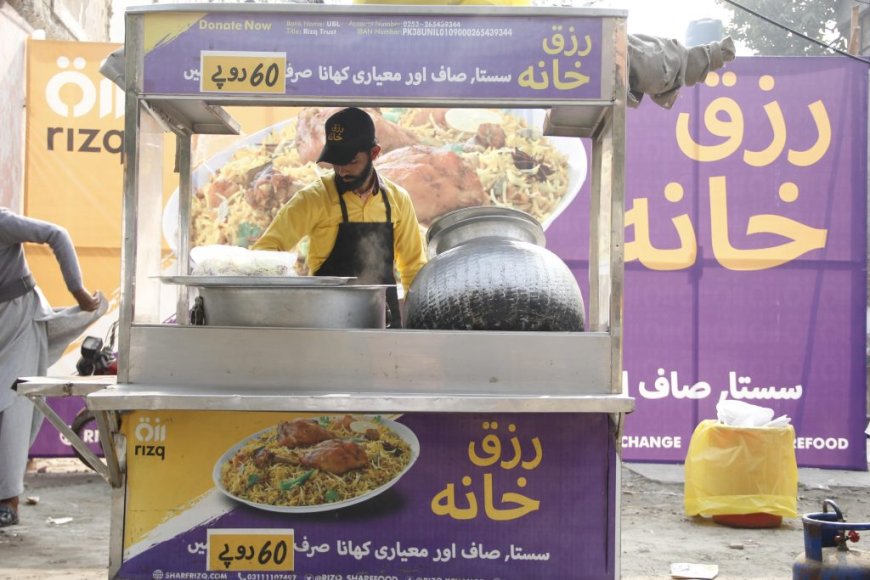Rizq Khana Rs. 60 Meals Feeding Urban Pakistan
Rizq Khana by Rizq Trust serves hot meals for just Rs. 60, giving daily wage workers and students hope against urban hunger in Pakistan’s cities.

In the heart of Pakistan’s busy cities, a quiet revolution is taking place, plate by plate. Rizq Khana, an initiative launched by Rizq Trust, is serving freshly cooked meals to those who need them most all for just Rs. 60. As food inflation squeezes millions, this simple idea is becoming a lifeline for the country’s working poor and a model for cheap meals Pakistan needs.
Urban hunger in Pakistan is not new. Daily wage earners, laborers, rickshaw drivers, students living far from home — many struggle to afford even one proper meal a day. The cost of a simple lunch at a small dhaba or roadside café can easily cross Rs. 200, which is out of reach for someone who earns barely enough to survive. This is where Rizq Khana steps in with a promise: a healthy, hot plate of food at a price anyone can pay.
Each Rizq Khana meal is freshly prepared in hygienic kitchens. Volunteers and staff cook local Pakistani favorites like lentils, vegetables, rice, or a small serving of meat curry, served with fresh roti. It’s not fancy food, but it’s clean, filling, and served with dignity. That last part is important — because Rizq Trust believes affordable meals help people keep their pride, unlike free handouts that can feel uncomfortable to accept.
Unlike typical charity, Rizq Khana doesn’t give away food for free. Instead, it keeps the price at Rs. 60, so people feel they are paying for their meal and not relying on charity alone. Behind this low price are donations and sponsors who help cover real costs. Many people and businesses pitch in to keep the kitchen running, knowing they’re helping someone eat for a day.
The stalls are set up at smart locations: near bus stops, construction sites, industrial markets, and busy streets where day laborers gather. Here, those who spend all day earning a living can buy a cheap meal in Pakistan without spending half their daily income. It’s a small model with a big impact — one that other cities could learn from to help tackle urban hunger Pakistan still faces daily.
Rizq Trust’s bigger mission is not just to fight hunger but to fight food waste. Pakistan wastes millions of tons of food every year at weddings, hotels, and restaurants. Meanwhile, countless people go to sleep hungry. The organization believes if more communities rethink how we use surplus food and open affordable stalls like Rizq Khana, urban hunger in Pakistan can actually be reduced.
Started in Lahore, Rizq Khana now aims to grow in other major cities like Karachi and Islamabad. Their goal is to make the Rs. 60 meal a familiar sight for anyone who needs it no questions asked. By keeping the system simple, transparent, and community-driven, they want to inspire restaurants, neighborhood groups, and mosques to do the same in their areas.
For someone who lives on daily wages, a cheap meal in Pakistan is not just about food — it means they can focus on work instead of worrying about their next meal. It means students can study without going hungry. And it means no one has to beg or skip meals because they can’t afford rising prices.
What started as a small food stall is now a symbol of how local solutions can tackle big problems like urban hunger. Each plate may cost only Rs. 60, but it carries hope, dignity, and the power of community action. In a time when news is often heavy with price hikes and uncertainty, Rizq Khana is a reminder that small ideas done consistently can bring real change.
For more updates, visit NationBytes.pk

 Israr Ahmed
Israr Ahmed